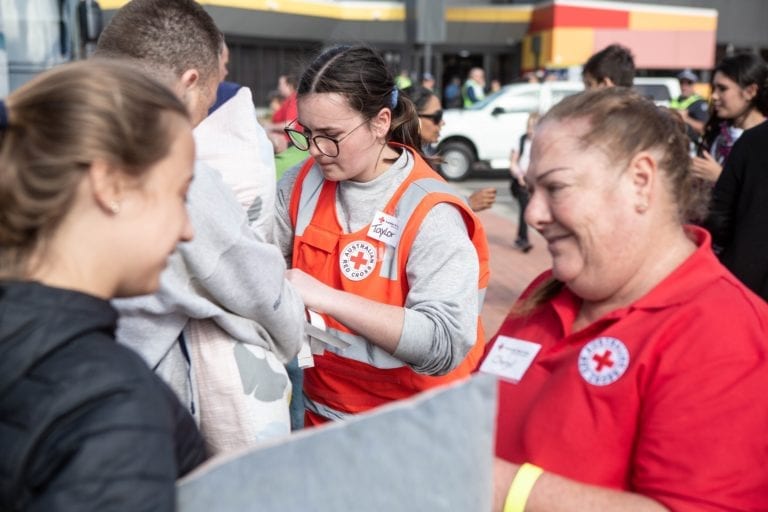The Indelible Impact of Volunteers:

Volunteers play a multifaceted role in responding to health crises. Their contributions extend beyond traditional medical care, encompassing a wide range of essential tasks:
- Direct Patient Care: Trained volunteers can assist healthcare professionals with providing basic care, such as taking vital signs, administering medication, and offering emotional support to patients.
- Logistics and Operational Support: Volunteers are indispensable for tasks like transporting supplies and equipment, setting up temporary shelters, managing food distribution, and maintaining sanitation in affected areas.
- Community Outreach and Education: Volunteers can engage with communities to disseminate crucial information about prevention, treatment, and available resources. They can also help identify individuals who need assistance and connect them with appropriate services.
- Mental Health Support: Health crises often result in psychological distress among those affected. Volunteers with specialized training can offer counselling, support groups, and other forms of mental health assistance.
The impact of volunteers extends beyond immediate relief efforts. They contribute to building resilience within communities by fostering a sense of solidarity, shared responsibility, and hope in the face of adversity.
Best Practices for Volunteer Mobilization:
Effective volunteer mobilization requires careful planning and coordination to ensure volunteers are deployed efficiently and safely:
Needs Assessment:
A comprehensive needs assessment should be conducted to identify the specific skills, resources, and support required during the crisis. This will help tailor volunteer recruitment efforts to meet the identified needs.
Clear Recruitment Strategy: Targeted recruitment strategies should be implemented to reach potential volunteers with diverse skills and backgrounds. Online platforms, social media, and partnerships with local organizations can be effective channels for outreach.
Comprehensive Training: Volunteers must receive thorough training relevant to their assigned tasks, encompassing essential skills, protocols, safety guidelines, and communication strategies. Training should be tailored to the specific context of the crisis.
Effective Communication: Regular communication channels should be established to inform volunteers about their roles, responsibilities, and any updates or changes in the situation. Clear protocols for reporting incidents, concerns, or requests for assistance must be in place.
Safety and Well-being:
Prioritizing the safety and well-being of volunteers is paramount. This includes providing personal protective equipment, access to mental health support, and ensuring safe working conditions.
Recognition and Appreciation: Volunteer efforts must be recognized and appreciated. Expressing gratitude and celebrating their contributions fosters a sense of value and motivates ongoing support.
Challenges and Opportunities in Volunteer Mobilization:
While the role of volunteers is invaluable in health crises, there are inherent challenges:
Rapid Response: Mobilizing volunteers efficiently in the face of a rapidly escalating crisis can be challenging. Pre-existing partnerships and communication channels can facilitate quicker response times.
Coordination and Oversight:
Managing a large number of volunteers requires robust coordination mechanisms to ensure tasks are effectively allocated, duplication is avoided, and volunteers are supported.
Sustainability: Maintaining volunteer engagement over the long term can be difficult, especially during protracted crises. Recognizing the contributions of volunteers, providing opportunities for meaningful involvement, and ensuring clear communication are essential for sustaining momentum.
Safety and Security: Volunteers may face risks to their safety and security in crisis-affected areas. Comprehensive risk assessments, appropriate training, and security protocols are crucial for safeguarding their well-being.
Despite these challenges, volunteer mobilization presents significant opportunities for innovation and improvement:
Leveraging Technology: Mobile applications, online platforms, and social media can enhance volunteer recruitment, training, communication, and coordination.
Developing Specialized Training Programs:
Tailored training programs for specific roles, such as mental health support or logistics management, can enhance the effectiveness of volunteer contributions.
Building Long-Term Partnerships: Establishing strong partnerships with local organizations, community groups, and volunteer networks can facilitate rapid and effective deployment of volunteers during future crises.
Promoting Research and Evaluation: Investing in research and evaluation initiatives can generate valuable insights into best practices for volunteer mobilization and optimize future responses.
FAQ:
Q: Who can become a volunteer in a health crisis?
A: Volunteers come from all walks of life and with diverse skills and backgrounds. Anyone willing to contribute their time and effort can play a vital role, whether it’s providing direct care, assisting with logistics, or offering support to affected communities.
Q: What kind of training is required for volunteers?
A: Training requirements vary depending on the specific role and tasks assigned to volunteers. Basic training might include first aid, infection control, and communication protocols, while specialized roles may require more in-depth training in areas like mental health support or logistics management.
Q: How can I get involved as a volunteer during a health crisis?
A: Local organizations, government agencies, and international humanitarian groups often mobilize volunteers during crises. Check their websites, social media channels, or contact them directly to learn about opportunities and requirements.
Q: What are the risks associated with volunteering in a health crisis?
A: Volunteers may face risks to their safety and security, exposure to infectious diseases, and mental health challenges. Organizations must provide comprehensive risk assessments, safety protocols, and support systems to safeguard volunteers’ well-being.
Conclusion:
Volunteer mobilization plays a crucial role in mitigating the impact of health crises. By leveraging the power of collective action and diverse skills, volunteers can make a significant difference in supporting affected communities and responding effectively to emergencies. Embracing best practices for mobilization, addressing challenges, and fostering innovation will ensure that volunteers remain a vital force in navigating the complexities of future health crises. The dedication and resilience of volunteers serve as a beacon of hope and a testament to the enduring human spirit in the face of adversity.
Closure
Thus, we hope this article has provided valuable insights into Volunteer mobilization in health crises. We appreciate your attention to our article. See you in our next article!